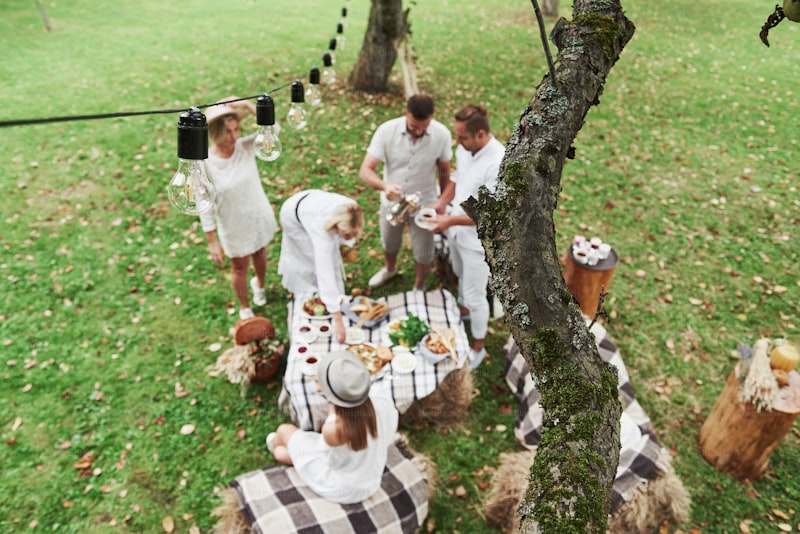Eco-Awareness in the Wedding Industry: A Sustainable Shift Towards Conscious Celebrations
Understanding Eco-Awareness in the Wedding Industry
As our planet faces significant environmental challenges, the wedding industry is increasingly embracing eco-awareness. Couples today are searching for sustainable practices to minimize their weddings’ ecological footprints. This article delves into the meaning of ecological awareness in the wedding context, explores its rising significance, and provides practical tips for eco-conscious couples planning their special day.
The Rise of Eco-Awareness
In recent years, there has been a growing trend in various industries to adopt environmentally friendly practices, and the wedding sector is no exception. The increase in climate change concerns, coupled with a more informed and eco-conscious clientele, has led to a shift towards sustainability in wedding planning. Couples are becoming more aware of the environmental impact of their celebrations and are striving to incorporate green practices into their big day.
What is Eco-Awareness?
Eco-awareness refers to the understanding and concern about the ecological impact of our actions. In the wedding industry, this translates to decisions that prioritize sustainability and minimize waste. This can include selecting local vendors, using organic materials, and incorporating eco-friendly decor.
Benefits of Eco-Friendly Weddings
Planning a sustainable wedding not only benefits the environment but also offers other advantages. Here are some of the key benefits:
| Benefits | Description |
| Cost-Effective | Eco-friendly options can often be more affordable, allowing couples to allocate funds to other areas. |
| Unique Experience | Choosing unusual venues or local suppliers can lead to a more personalized and memorable wedding. |
| Positive Impact | Sustainable choices contribute to local economies and environmental conservation. |
| Enhanced Reputation | Couples can enhance their reputation as responsible consumers, showcasing their commitment to sustainability. |
Key Areas to Focus on for an Eco-Friendly Wedding
To help couples plan an eco-conscious wedding, we will explore various components of the wedding planning process that can be made more sustainable.
Sustainable Venues
Choosing the right venue is crucial. Look for locations that practice environmental stewardship, such as outdoor settings that minimize resource consumption. Consider venues that use renewable energy sources and have sustainability certifications.
Eco-Friendly Attire
Wedding attire is often a significant part of the budget. Opt for sustainable fabrics like organic cotton, hemp, or Tencel, which are less detrimental to the environment. Alternatively, consider renting attire or shopping second-hand to reduce waste.
Local and Seasonal Catering
Catering can have a substantial ecological impact; therefore, working with local farms and chefs who use seasonal ingredients cuts down on transportation emissions and supports local economies. Additionally, reducing food waste through planning and donating leftover food can make a huge difference.
Ethical Decor
Instead of traditional floral arrangements that may use harmful pesticides, couples can look for organic flowers or locally sourced foliage. Additionally, utilizing reusable decor items like vintage or rented centerpieces helps reduce waste.
Invitations and Save-the-Dates
Consider digital invitations or printed materials made from recycled paper. There are numerous creative digital options available, allowing couples to save on printing costs while lessening their environmental footprint.
Transportation Solutions
One way to make the event more eco-friendly is by arranging group transportation for guests. This reduces emissions and ensures that guests arrive at the venue together, creating a cohesive experience.
Eco-Conscious Favors
Instead of traditional wedding favors that often end up in the trash, think of eco-friendly alternatives. Seed packets, small potted plants, or homemade jams are thoughtful gifts that guests can use and appreciate while reflecting the couple's sustainable values.
| Eco-Friendly Wedding Favors | Description |
| Seed Packets | Encourages guests to grow their own plants, promoting sustainability. |
| Potted Plants | Long-lasting gifts that add greenery to homes and offices. |
| Homemade Jams | Supports local resources and delivers a personal touch to favors. |
Addressing Challenges
Transitioning to an eco-friendly wedding can present challenges. Couples may feel pressure to conform to traditional standards or face difficulties finding sustainable vendors. However, embracing sustainability doesn’t have to mean sacrificing style or elegance. Clear communication with wedding planners and thorough research can yield great results.
Case Studies: Inspirational Eco-Friendly Weddings
Numerous couples have successfully implemented sustainable practices into their weddings. For example, one couple opted for a zero-waste wedding by utilizing second-hand decor and family heirlooms. They also created a potluck-style reception, encouraging guests to bring dishes to share, significantly cutting costs and waste. Such real-life examples serve to motivate couples considering similar approaches.
Conclusion: Embracing Eco-Awareness
As the wedding industry continues to evolve, eco-awareness has emerged as a vital consideration for those planning their ceremonies. By implementing sustainable practices, couples not only lessen their environmental impact but also set a powerful example for their friends and families. To achieve a successful eco-friendly wedding, focus on sustainable venues, attire, catering, decor, invitations, transportation, and favors.
In conclusion, marrying sustainability with personal touches creates a celebration that is both meaningful and mindful. Couples embarking on this path should remember that every small change counts. Start early in planning to allow time for research and to deliberate over eco-friendly choices. By prioritizing eco-awareness in the wedding industry, we contribute to a brighter and more sustainable future for generations to come.
